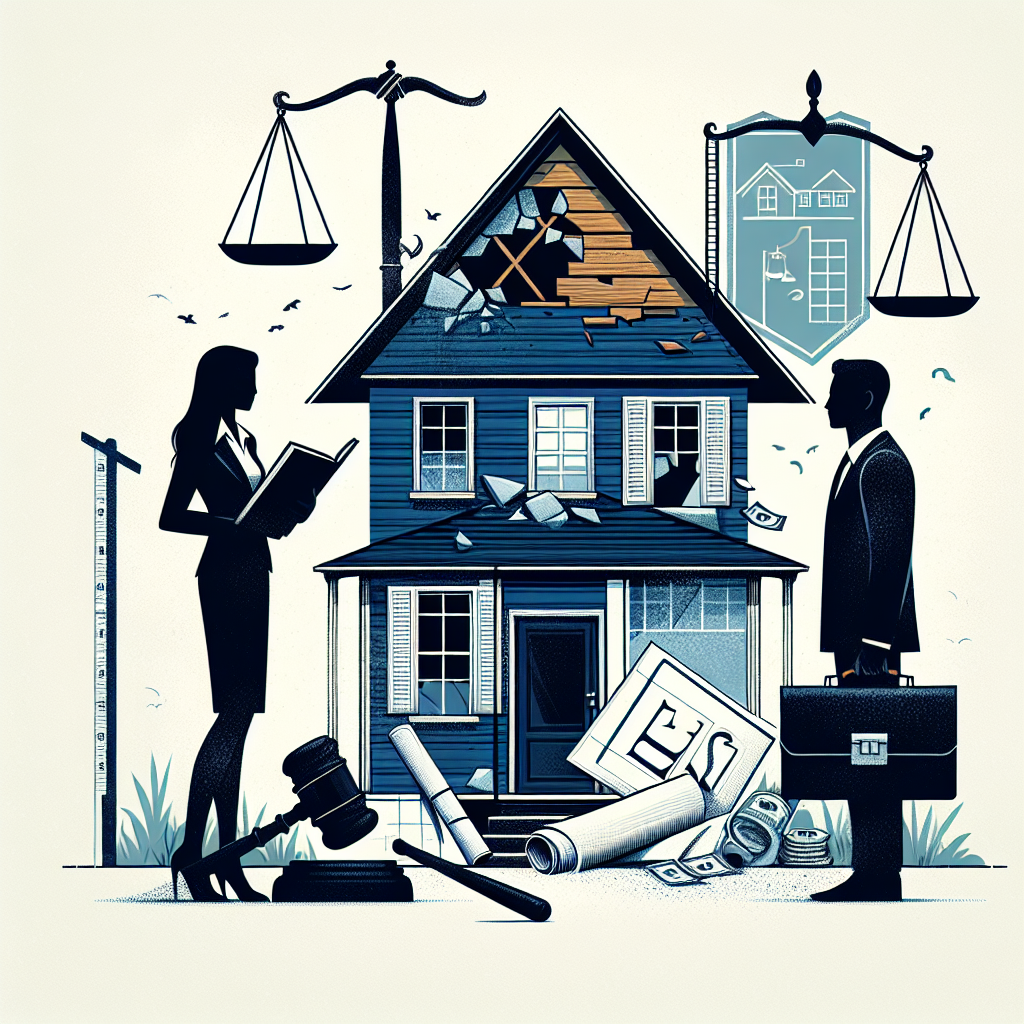Filed under Home Insurance on
Choosing the Right Home Insurance Lawyer for You

When the unexpected happens, and your home suffers damage, the last thing you want is to battle with your insurance company over claims. At this juncture, having an experienced home insurance lawyer by your side can make a world of difference. However, choosing the right home insurance lawyer can be a daunting task. How do you ensure that your selection is not only qualified but also the best fit for your situation?
Understanding the Role of a Home Insurance Lawyer
Before diving into how to choose a home insurance lawyer, it's essential to understand their specific role. A home insurance lawyer specializes in handling disputes between policyholders and insurance companies. These professionals negotiate settlements, represent clients in court, and provide crucial advice on policy entitlements. Their primary goal is to ensure that you receive what you are rightfully owed according to your insurance policy.
Why You Might Need a Home Insurance Lawyer
Several scenarios necessitate hiring a home insurance lawyer:
- Your claim has been unjustly denied.
- You're receiving less compensation than you believe you're entitled to.
- Your insurance company is delaying payment unreasonably.
- You require expert interpretation of a complex insurance policy.
In such cases, a home insurance lawyer can advocate on your behalf, ensuring you are treated fairly.
Qualities to Look for in a Home Insurance Lawyer
Now that you know when you might need one, let's explore the qualities that are essential in choosing the right home insurance lawyer.
Experience and Expertise
Firstly, look for a lawyer with extensive experience in home insurance claims. Prior knowledge of insurance policies, claim negotiations, and courtroom procedures is invaluable. An experienced lawyer will have a track record of successfully handling cases similar to yours.
Client Testimonials and Reviews
Research online reviews and ask for testimonials from former clients. A reputable home insurance lawyer will have positive feedback indicating their reliability and effectiveness. Bear in mind that a few negative reviews are common, but the overall sentiment should be positive.
Clear Communication
Your lawyer should communicate clearly and keep you updated at every stage of the process. They should be approachable, making you comfortable to ask questions and express concerns. The right home insurance lawyer will explain complex legal terms in a way that you can easily understand.
Proven Negotiation Skills
Insurance companies often resist paying large settlements. Your lawyer must be a strong negotiator who can advocate assertively on your behalf. This skill is crucial in ensuring that you receive the best possible outcome without necessarily having to litigate.
The Importance of Initial Consultations
Most law firms offer an initial consultation free of charge. This meeting is an opportunity to assess the lawyer's capabilities and determine their suitability for your case. Prepare a list of questions to ask during this consultation, such as:
- What is your experience with cases similar to mine?
- How do you charge for your services, and what fees can I expect?
- What is your approach to handling claims disputes?
- How long might my case take to resolve?
The manner in which a lawyer responds will provide insight into their level of expertise, communication style, and the potential rapport you might establish.
Navigating Fee Structures
Understanding a home insurance lawyer's fee structure is critical. Generally, lawyers charge in one of the following ways:
Contingency Fees
Many home insurance lawyers work on a contingency fee basis, meaning they only get paid if you win your case. This fee is usually a percentage of the settlement you receive. Ensure you understand what this percentage is and if it covers all legal costs.
Hourly Rates
Some lawyers charge by the hour. While this can provide flexibility, it can also be challenging to predict the total cost. Hourly rates can add up quickly, so it's important to get an estimate upfront.
Flat Fees
For straightforward cases, some lawyers might offer a flat fee. This can provide certainty about the total cost, but make sure it covers all aspects of your legal needs.
Red Flags to Avoid
While there are many skilled professionals, there are also those you should avoid:
- Overpromising Results: Be wary of lawyers guaranteeing a specific outcome. The legal process can be unpredictable.
- Lack of Communication: If a lawyer is difficult to reach or doesn’t return calls promptly during your initial inquiries, this might indicate how they will communicate during your case.
- Pressure Tactics: A professional lawyer should never pressure you into signing a contract. Take your time to make an informed decision.
Leveraging Technology and Resources
Today’s cutting-edge technology offers several tools to aid your search. Utilize online directories, legal forums, and bar association websites geared specifically towards finding a reputable home insurance lawyer. Resources like Avvo or Martindale-Hubbell provide ratings and reviews that offer insight into a lawyer’s expertise and reputation.
Industry Trends and Insights
Keeping an eye on industry trends can also be beneficial. For instance, recent trends indicate a rise in cases involving climate-related damages, prompting home insurance lawyers to specialize in such claims. Understanding these trends can guide you in selecting a lawyer who is current with the challenges in today's insurance landscape.
Conclusion: Making the Right Choice
Choosing the right home insurance lawyer requires diligence and research. Thoroughly investigate potential lawyers, assess their experience, and trust your instincts during consultations. The right lawyer will not only have the qualifications and experience needed but will also be someone you feel comfortable working with throughout your case. By taking the time to make an informed decision, you can ensure that your path to settlement is as smooth and successful as possible.



